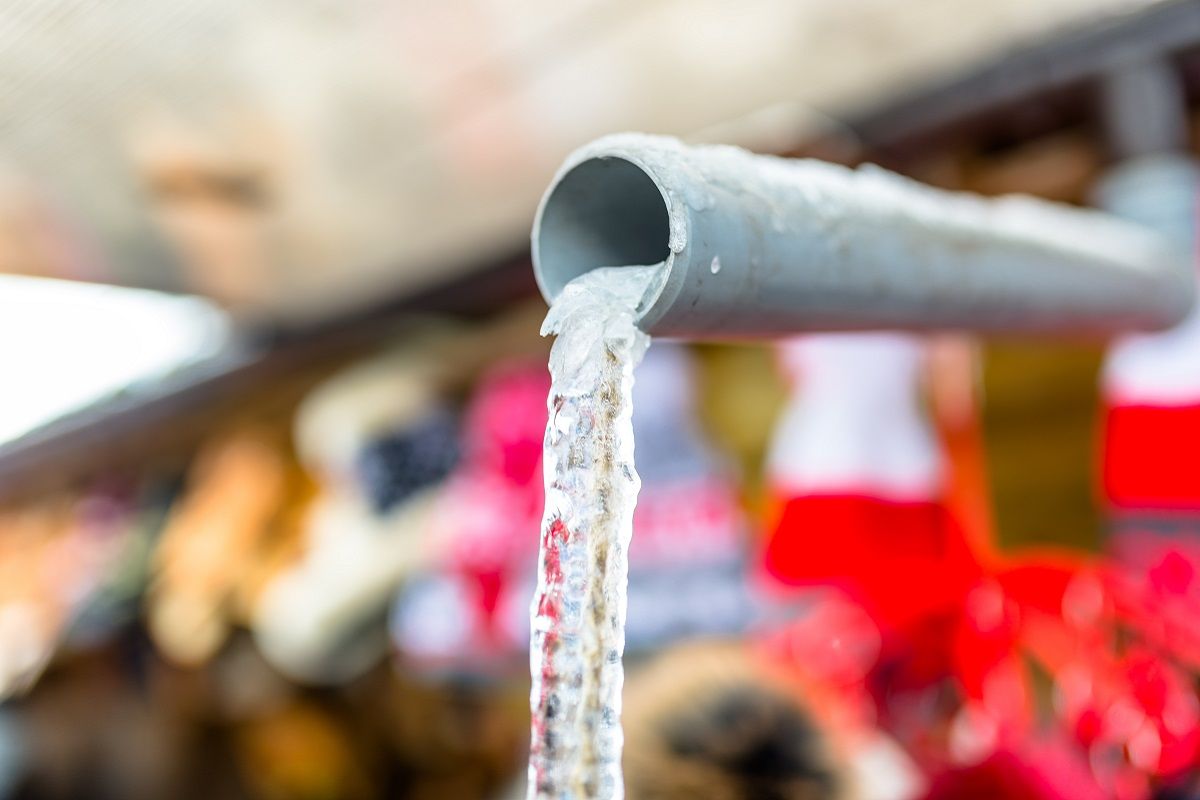If you have uninsulated water pipes running through a crawlspace under the house, the hot water pipe is likely to freeze before the cold water pipe during cold winter nights.
It doesn't seem to make sense. The cold water pipe is originally closer to the temperature of the outside air, so it seems logical that the cold water pipe would be the first to get cold enough to freeze.
The monkey wrench in this argument is that hot water and cold water do not have the same freezing point -- that is, the temperature required to make ice is generally lower if you start with cold water than if you start with hot water.
The reason for the difference in freezing point is that cold water can hold more dissolved air than hot water. When you dissolve anything in water, you lower its freezing point.
Freezing temperature depends not only on what a substance is, but on what's dissolved in it. That's why antifreeze, dissolved in the water in a car radiator, enables that water to stay liquid below 32 degrees Fahrenheit, the freezing point of pure water. Salt does the same thing to water on the street.
Anyway, hot water holds less dissolved air than cold water, so it doesn't have to be made quite as cold before it freezes.
So the hot water pipe is likely to freeze before the cold water pipe because hot water generally has less dissolved air and therefore has a higher freezing point than cold water.
This relationship between temperature and dissolved gas is also part of the reason that warm champagne and warm soda pop go flat so fast: the warm beverage loses it dissolved carbon dioxide faster than a cold beverage. This principle also explains why life is usually more abundant in cold streams than in warm streams: cold water holds more dissolved oxygen.
This moment of science comes from Indiana University with production support from the Office of the Provost.
I'm Yaël Ksander.










